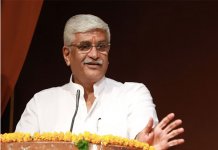The Saudi Minister of Tourism, His Excellency Ahmed Al-Khateeb, has introduced a groundbreaking initiative designed to propel the nation’s rapidly expanding tourism industry forward.
Known as the Tourism Investment Enabler Program (TIEP), this ambitious endeavor seeks to streamline and enhance the business landscape within Saudi Arabia’s tourism sector. Its primary goal is to facilitate a more accessible and cost-effective environment for both international and domestic investors, thereby fostering prosperity in what is recognized as one of the globe’s most competitive tourism investment arenas. The program comprises a variety of strategic initiatives aimed at catalyzing growth and innovation within the industry.
The flagship Hospitality Investment Enablers, part of the wider TIEP, is designed by the Ministry of Tourism in collaboration with the Ministry of Investment. This initiative will facilitate and increase the supply of accommodation capacity in targeted tourism destinations, enhancing the diversity of the Kingdom’s offering, and marking a pivotal move to position Saudi Arabia as a leading global tourism destination.
This comprehensive initiative will aim to catalyze private investments in key tourism sites across the Kingdom by up to SAR 42 billion ($11 billion) and drive projected annual GDP increase of SAR 16 billion ($4 billion) by 2030.
The flagship initiative includes a range of strategic enablers designed to improve business operations and project viability. Key enablers include facilitating access to government-owned land under favorable terms, streamlining project development processes, and reducing barriers to market entry. Multiple regulatory adjustments are part of the effort to lower operational costs and encourage industry growth.
A notable aspect of the initiative is its focus on benefiting local communities across tourism destinations. By localizing services such as contracting, design, and consulting, the program aims to create a direct positive impact on various sectors. This approach, coupled with over $800 billion invested to transform the tourism landscape, underscores Saudi Arabia’s commitment to enhancing industry standards and providing lucrative opportunities for investors.
Saudi Arabia expects the initiative to significantly impact the socio-economic landscape, creating 42,000 new room keys and approximately 120,000 job opportunities, furthering talent development and supporting Saudization efforts.
The wider TIEP includes regulatory reforms across tourism licensing for multiple types and scales of operations now available to better fit the specific needs of investors.
The Ministry of Tourism has worked with partners across government to achieve a more streamlined investment pathway, pushing annual government fees down by nearly 22% with a goal to reduce further in the near future.
Another key initiative of TIEP is the Tourism Investment One Stop Shop, which will be launched later this year in collaboration with the Saudi Business Center. The One Stop Shop will offer all Tourism ecosystem services under one roof, and support investors through their full investment journey in addition to online integration and digital experiences.
His Excellency Ahmed Al-Khateeb, Minister for Tourism said: “Saudi Arabia offers the world a rich diversity of culture and experiences. Vision 2030 has put Saudi Arabia on the pathway to become a global tourism powerhouse with the tourism sector in Saudi being a key driver of economic diversification.
“In 2023, we saw a 390% increase in demand for tourism activity licenses and this is just the beginning. Over the next 10 years, Saudi Arabia will be the world’s top investor in this sector as we continue to unlock our country’s potential.”
One of Vision 2030’s key targets of welcoming 100 million tourists has already been achieved seven years ahead of schedule, and the Tourism Investment Enablers Program is a key catalyst to achieving an even more ambitious target of 150 million annual tourists.















